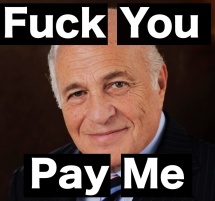 March 17, 2015
March 17, 2015 The Music Industry Says Farewell to Freemium

Maybe Rob Wells doesn’t really get the idea of cannibalism. I don’t agree with him on this, because streaming has hurt the one-track sales and the buying habits of the consumer. We see that in a reflection of the dropping sales in the iTunes marketplace and other content providers that have dwindling sales. In the November 2013 MIT Sloan Management Review, Wells explains that he does a lot through charts to get people on his side and a lot of the senior staff at the label seem to be less tech savvy, so it is hard to convince and persuade the senior level staff. Well used the example that he had to introduce senior level executives to Snapchat and Vine. He could tell if they were interested if they were engaged in the conversation, if not they would ignore him all together. This seems very frustrating, time consuming, and ineffective.
Wells needed to educate the workforce at UMG about digital strategies and tools. The former CEO at UMG, Doug Morris, believed in the traditional ways of the classic music industry and was reluctant to implement digital strategies. It seems as though the music industry is hesitant to make a move on implementing new ideas and platforms that are made up in house, yet Wells states in the interview that UMG has never turned down any deals from outside parties, however they have a “how about this” approach. Wells made it seem like he was always fighting to get his point across and make things happen on the digital side, however when second parties came along the label never said no, for example, the Nokia deal. Nokia brought and pitched their idea to UMG, to this day that platform is alive and well in China.
Wells said when dealing with the music industry you have to get people on board slowly. You have to prove the value of the deal, when you prove what and how it can change the industry on a day-to-day basis. Wells stated that charts are the best way to do things in the music industry, they show factual information and there is no questioning that. The challenge is presenting a new concept or service to senior management. He states that the risk is the fear of buying the machine, going to the service, and dragging down more of the value then we paid. Wells explained the unlimited music service becomes the bell curve that the consumer tries to download as much as they can at the beginning stages of the subscription, while at the half way point they seem to get bored and the downloads die down. At the very end stage of the consumer’s music subscription they download as much as possible, because the subscription service is about to end.
They made it seem like he was dated and could not bring anything else to the table. If you look closer, it seems as though he was frustrated, because he was trying to get people to see is point of view everyday.
At the present state, streaming isn’t sustainable and has not been profitable. The major labels that exist have deals that have been lopsided and are in favor of the larger artists and not the independent. The Black Keys were the latest to leave Spotify, because of the so-called “cannibalism.” The labels have more to gain from Spotify than the artists. UMG has a stake in Spotify and receive upfront licensing fees. Patrick Carney of the Black Keys stated, “There’s a lot of stuff about some of these services that people don’t really know, it’s set up to be little more fair for the labels than it is for the artists, and that’s why we made that decision.”
The only way that streaming will not be in the lines of cannibalism, is when the business model is changed with content limitations, release limitations, and when higher streaming payouts for artists are implemented. Then streaming may have a true chance at sustainability and making a profit. Until then, it’s a rough road for all parties involved. A UMG insider said, “It’s time to figure out how to drive up the value of our content.” Instead of getting pennies to the dollar, UMG needs to look at media perspectives in a broader view and within a platform. The music industry must be more innovative and creative to find alternative distribution platforms in a way that appeals to consumers wants and needs in a more convenient fashion. After looking at the big picture, Lucian Grainge explained that ad supported subscriptions weren’t working for anyone, but streaming services and music fans. This would make perfect sense that Rob Wells was fired for supporting Spotify and their freemium models. Well’s believed the freemium models would help, he stated, “The argument that streaming harms records sales is absolutely bogus.“ He didn’t leave out of frustration; he was fired because he was a firm believer in streaming, which hasn’t had a sustainable and profitable model to date. Even though he was fired for his thoughts and misconceptions, Well’s interview at the 2013 MIT Sloan Management Review is still proof that the music industry is very hesitant and resistant to adapt and innovate new technologies, digital platforms, and strategies. I guess Grainge agrees with my views on streaming services and freemium is dead in 2015, just as I predicted in my beginning of the year predictions.
Contact Info:
Email: jason@jasonkventura.com
LinkedIn: www.linkedin.com/in/jasonkventura/
Website: www.jasonkventura.com








Reader Comments (1)
Not that I'm for artists getting less and consumers getting more for nothing, but isn't taking the route of' "content limitations, release limitations, and... higher streaming payouts for artists" the wrong direction?
Limitations just make it harder for consumers to enjoy their product, and when that happens, they look for alternatives. Ultimately making it harder to pay artists. In fact, this combination of "solutions" is counter intuitive. Limitations and higher payouts work against each other and make the problem worse. It's like adding oil to water; it just wont mix.